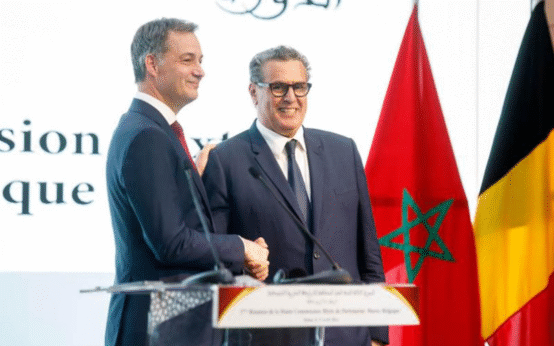Germany, Europe’s largest economy, is increasingly looking beyond its borders to solve a growing labor shortage that threatens its industrial and economic strength. With an aging population and declining birth rates, German companies are searching for skilled and semi-skilled workers abroad. Morocco, with its youthful workforce and growing vocational training programs, has emerged as a promising partner.
Growing labor shortage in Germany’s economy
German industries such as construction, healthcare, manufacturing, and hospitality have struggled to find enough workers. The German Chamber of Commerce has repeatedly warned that the shortage is costing billions in lost productivity. By 2035, experts predict that Germany could face a shortfall of up to seven million workers if effective solutions are not implemented.

German government has tried to ease restrictions on foreign workers through immigration reforms. However, companies say the process remains complex and time-consuming. This has led many businesses to directly explore partnerships with countries that have a surplus of young labor, like Morocco.
Morocco’s potential as a labor partner for Germany
Morocco offers a key advantage: a large pool of young people entering the labor market each year. The government in Rabat has invested in expanding vocational training programs across fields such as engineering, healthcare assistance, renewable energy, and information technology.
In addition, Morocco has long-standing trade and cultural ties with Europe, making integration of its workers smoother compared to other regions. The fact that many Moroccans already speak French and some are learning German as part of new training initiatives strengthens the potential partnership.
Skilled and unskilled labor demand across sectors
German companies are not only looking for high-skilled engineers or IT professionals. They also need thousands of workers in construction, caregiving, and service industries. Care homes, for instance, face serious shortages, with many elderly citizens lacking adequate support. Moroccan workers trained in caregiving could help fill this pressing gap.

Similarly, Germany’s ambitious renewable energy projects require skilled technicians and engineers. Morocco, which has developed significant expertise in solar and wind energy, could supply trained professionals who already have relevant knowledge.
Political and business cooperation between Berlin and Rabat
The growing interest of German companies in Morocco aligns with broader diplomatic and economic cooperation between the two countries. Berlin has emphasized its interest in strengthening ties with North Africa, not only for trade and energy partnerships but also for labor mobility agreements.
Rabat, for its part, sees labor export agreements as a way to reduce unemployment at home while securing valuable remittances from workers abroad. Moroccan officials have highlighted that such programs must be conducted responsibly, ensuring workers are protected and properly integrated into their host countries.
Challenges in labor mobility programs
Despite the potential, significant challenges remain. Immigration rules in Germany are still complicated, and workers from outside the EU often face long waits for visa approvals. Language barriers are another obstacle, though initiatives are underway in Morocco to expand German-language training.
There is also the concern of brain drain. If too many skilled workers leave Morocco, it could harm domestic industries. To counter this, Morocco aims to balance labor mobility by ensuring its own economy continues to benefit from vocational training programs.
The coming years will determine how effectively both governments and private companies can turn this opportunity into a structured, mutually beneficial framework.


 French-Moroccan MP Farida Amrani joins flotilla
French-Moroccan MP Farida Amrani joins flotilla  Morocco’s Sustainable Development Hailed Benchmark for Africa
Morocco’s Sustainable Development Hailed Benchmark for Africa  Morocco Defense Capabilities with French Caracal Helicopter Deal
Morocco Defense Capabilities with French Caracal Helicopter Deal  Is Belgium close to recognizing Morocco’s sovereignty over Sahara
Is Belgium close to recognizing Morocco’s sovereignty over Sahara  Moroccan Convicted in Germany for Rif Movement Spying
Moroccan Convicted in Germany for Rif Movement Spying  Germany’s Plan to Build Europe’s Largest and Strongest Army
Germany’s Plan to Build Europe’s Largest and Strongest Army